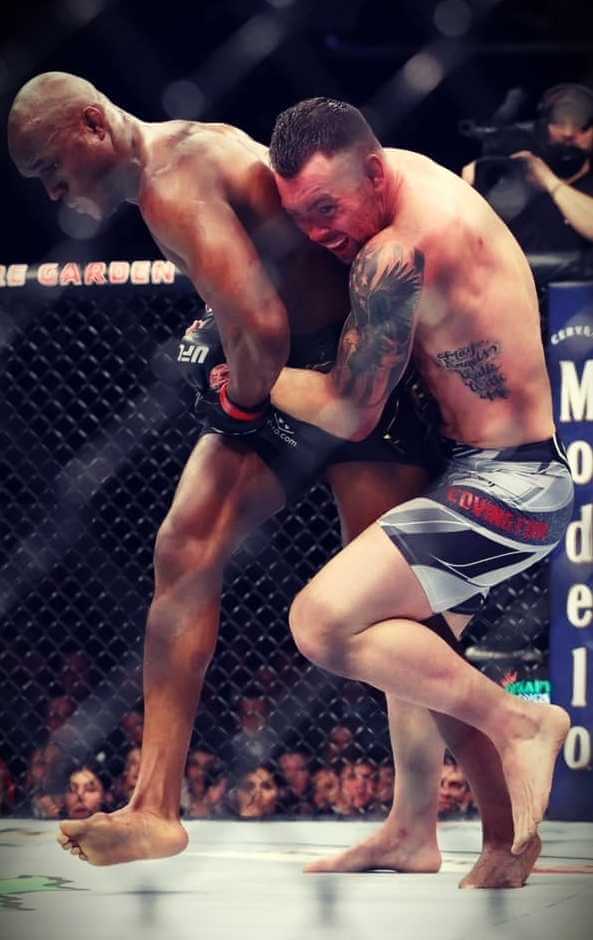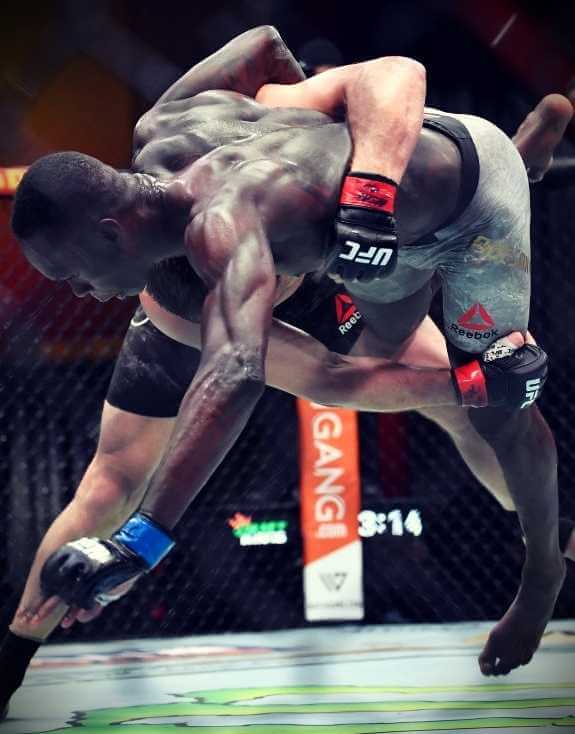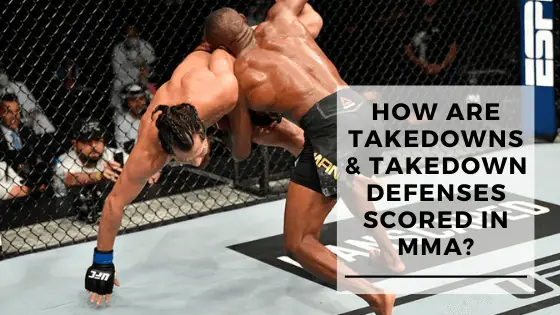Do you get points for takedown defense in MMA? Does the current point system overvalue takedowns that don’t lead to significant damage?
Successfully defending a takedown is not awarded any points. This is because it doesn’t fit the current MMA scoring system, which awards points only to offensive moves.
Many fighters and fans have said that they don’t like this because it means that no matter how many times a fighter has failed at taking down their opponent, they will still be viewed more favorably by the judges.
Apparently, simply shooting for a takedown could be better than defending multiple ones, whether it’s successful or not.
This is also the case for fighters that, even when they have control over their opponent, don’t seem to land any effective strikes on the ground, or fail to pass their opponent’s guard.
All they seem to do is keep their opponent pinned down, laying on top of them, but without advancing their position in any clear way. This is known as lay-and-pray.
Refs will sometimes stand both fighters up if this goes on forever, but it almost never happens.
If the top position is better, then the fighter on top should be able to land damaging blows to their opponent.
If you want to strike, you have to get in a position to do so. Your footwork, however, is not scored by the judges. This is because getting to a position shouldn’t be scored, whether it is standing up, or on the ground.

Many fans think that Gilbert Burns was guilty of this during his fight against Stephen Thompson. Known for his striking skills, ‘Wonderboy’ Thompson spent most of the fight on the ground.
However, it seemed to many that, even when Burns was controlling position, it wasn’t leading to many significant strikes landed.
You can also look at this from a different point of view. You could say that the fighter in the top position is showing effective grappling skills, and that to take down their opponent, they must be aggressive and control the octagon.
Also, fighters who score takedowns don’t do it simply to lay on top of their opponent. That is not their game plan.
Sometimes they have no alternative if their opponent’s bottom game is strong. If they attempt any strikes, even if they are in a top position, this may leave them open to submissions or risk their opponents slipping away and getting up.
The fighter who was taken down needs to use their grappling skills as well: fight to submit, sweep, or try to stand back up.
How many points are scored when a takedown is successful in MMA?
How much a takedown is worth in the UFC doesn’t seem to be all that clear. Judges under MMA’s Unified Rules award more points if a takedown results in damage.
Officially, then, it’s not only a change of position. A body slam would immediately count as a takedown, but slowly dragging an opponent to the ground wouldn’t score unless there are follow-up attacks or submission attempts.
The thing is that, in reality, fights that have gone to a decision don’t necessarily seem to follow this rule. Takedowns will sometimes score even if the opponent stands up right away. Also, if there is even a 30-second ground control then it will most likely lead to a round win.

A recent example of this happened during UFC Vegas 32. TJ Dillashaw won his bout against Corey Sandhagen via split decision.
This was criticized by many because Dillashaw seemed to be using his grappling to cancel Sandhagen’s striking but made no significant efforts to advance his position.
Also, Sandhagen was doing far more visible damage with the significant strikes he was landing.
After five close rounds, the judges scored two successful takedowns and longer octagon control over the damage done by Sandhagen, and gave Dillashaw the win. Even Khabib, famed for his grappling, criticized the decision. Damage should count for more.
If you pull guard, does it count as a takedown for your opponent?
MMA rules don’t specifically say if pulling guard counts as a takedown for your opponent. But it will most likely lead to a score against you anyway. This is probably because it is seen as giving up the standing position without a struggle.
Not only that, it will most likely mean that your opponent will be in a better position to land ground-and-pound strikes.
Even if you happen to be a BJJ expert, it wouldn’t make a lot of sense to do this. An expert ground fighter should be able to take the fight to the ground without giving up a dominant position.





